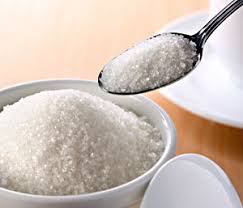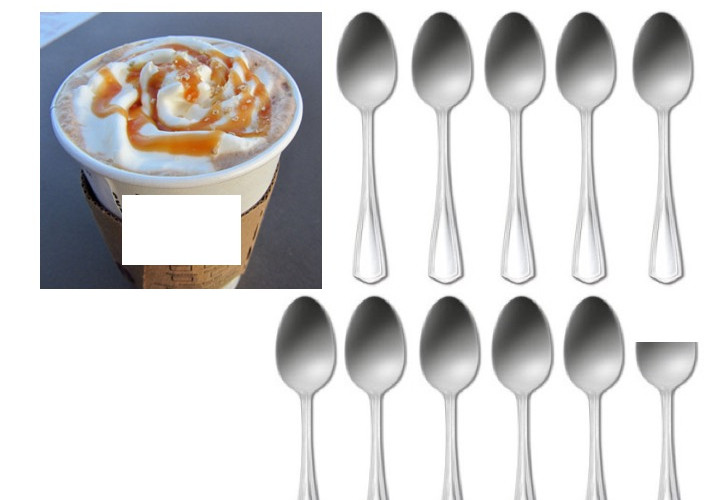Sugar Shocker! You may be surprised by the amount of sugar in your favourite beverages.
- Cheryl Corry, RD
- Feb 14, 2018
- 3 min read
(swipe slide right for more information)
Healthy eating guidelines recommend that you limit your intake of sugary beverages. Excess sugar consumption has been linked to conditions such as
heart disease, diabetes, inflammation, weight gain and dental caries. Too many sugary drinks can also make you feel full (especially children) and decrease your appetite for healthy foods. Although many of people are aware of the sources of sugar in the foods they eat, often times they overlook the sugar that may be in their beverages.
Sugar is found naturally in beverages such as 100% fruit juice and milk. These types of beverages are part of a healthy eating plan as they also have vitamins, minerals and other nutrients. Added sugar however, is found in the following drinks:
pop
sports drinks
specialty coffees
coffee & tea (only if you add sugar)
chocolate milk
flavored milk alternatives
yogurt drinks
commercially prepared smoothies
slushes
energy drinks
vitamin water
lemonade
iced tea
powdered drink mixes
fruit drinks/punches and cocktails
Many alcoholic beverages have added sugars as well such as coolers, specialty drinks (i.e. margarita, daiquiri, pina colada) and liqueurs.
Most beverages containing added sugars contain extra calories and are low in nutrients.
You can find out information about the sugar in the drinks you are consuming by looking at the “Ingredients" list on the label. Ingredients are listed in order of weight. If sugar is one of the first ingredients on the list, this drink contains mostly sugar. To make it more confusing, sugar has many different names. It doesn’t make a difference if the added sugar is from a “natural” source, it is still “sugar”.
The following ingredients would indicate added sugar:
sugar- white, brown, raw, invert
agave
cane juice extract
concentrated fruit juice
corn syrup and corn syrup solids
Demerara or Turbinado sugar
evaporated cane juice
fructose, glucose, sucrose, dextrose, maltose (if it ends in “-ose”, it is sugar!)
maltodextrin
high fructose corn syrup or glucose-fructose*
honey
molasses
nectar
syrup
treacle
*High Fructose Corn Syrup (HFCS), is listed on the label in Canada as glucose-fructose. This is a type of sweetener used by many food manufacturers because it is less expensive than sugar. It may cause excess gas and bloating in people who have digestive issues.
If you want to know how much sugar is in your beverages, you can look at the Nutrition Facts table on the label. It is important to note the serving size on the label to see if this is the amount that you would consume. You may need to divide or multiply the nutrition information based on your usual portion. Under the listing for “Carbohydrate”, you will find “Sugars” and the number of grams (g) of sugar in one serving of this product.

An easy way to visualize how much sugar is in your drink is to keep in mind that there are 4 grams (g) of sugar in a teaspoon (tsp.). For example, this cola beverage contains 41 g of sugar per 355 mL serving (1 can). This is equivalent to 10 tsp. of sugar (40 g sugar/4 g sugar per tsp. = 10 tsp. sugar).
Most fast food restaurants or coffee shops have nutrition information for their products on their website, so you can look up the nutrition information for your favorite beverage online.
To put things in perspective, the American Heart Association recommends that women shouldn’t have any more than 6 tsp. (24 g) of added sugar per day, and men shouldn’t consume more than 9 tsp. (36 g), of added sugar per day. You may be getting too much added sugar in your diet if your intake is in excess of these amounts. Health Canada currently does not have specific recommendations in terms of teaspoons or grams per day of sugar that Canadians should consume.
Try consuming beverages without added sugars more often such as:
water or sparkling water (add a splash of juice or fresh fruit such as lime/lemon/orange slices, melon or cucumber or mint for extra flavour)
milk
unsweetened milk alternative
100% juice**
herbal tea
coffee or tea (without sugar), in moderation
**(Although fruit juice contains “natural” sugar, it is recommended to limit consumption to about 125 mL/d, especially for children. It is much better to consume whole fruit which also provides added dietary fibre).
If you drink sweetened alcoholic beverages, try dry wine or liquor mixed with soda/sparkling water instead, and add lemon or lime for extra flavour.
When you feel thirsty, try reaching for healthy beverages most of the time, and limit your sugary beverage consumption to once in a while.
Drink Well, Feel Well, Be Well
Cheryl













